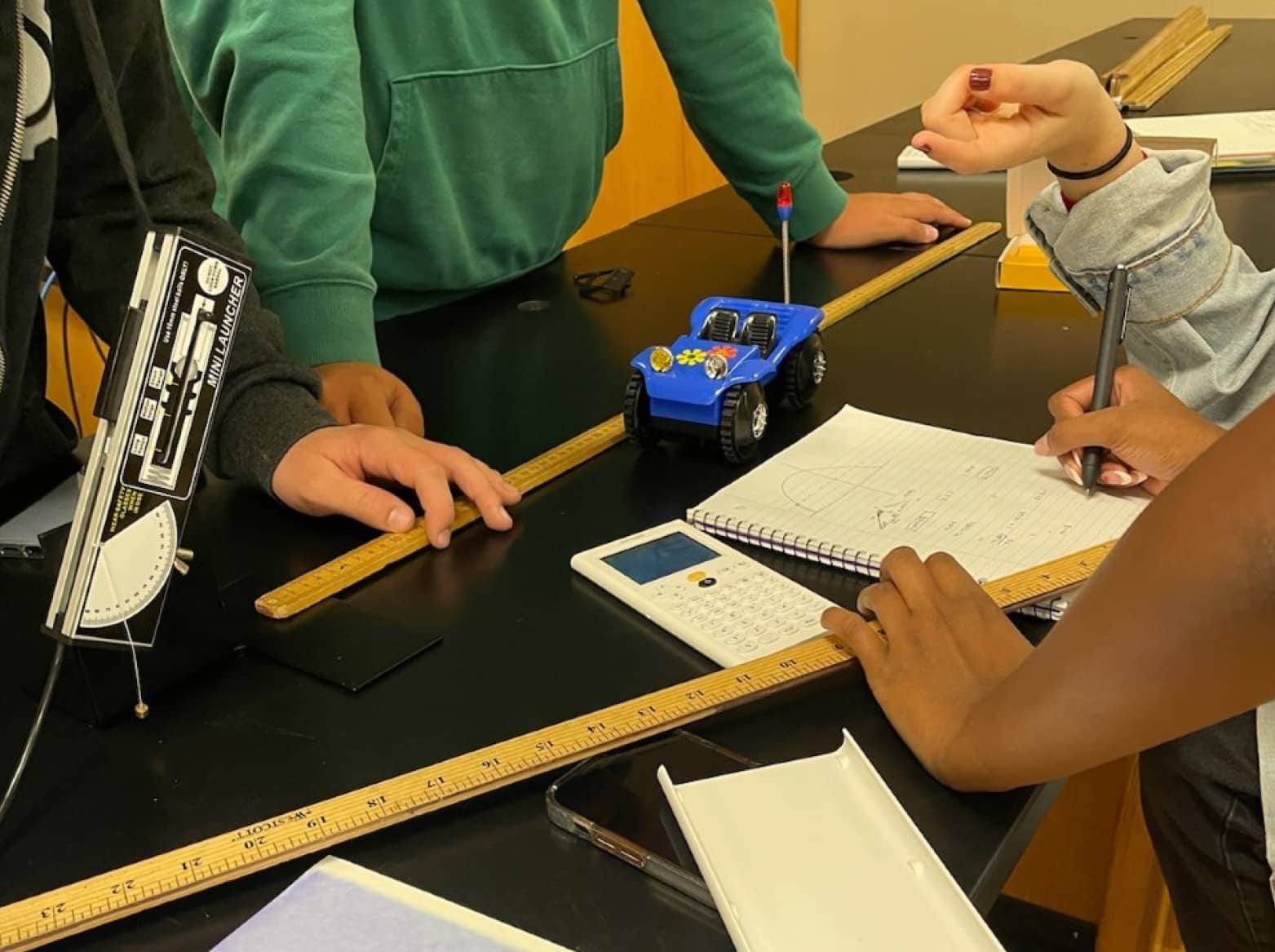
Project Proposal
Rocket launchers, constant velocity and constant acceleration cars, as well as other physics-related equipment will allow students to design experiments, collect data, and to make changes for improved performance based on data analysis, as well as make changes to demonstrate various force and motion concepts including Newton’s Laws, acceleration, stability, and recovery. Similarly, in second semester, students will use radio technology to investigate the properties of electricity, wave energy, weather, and the earth’s atmosphere. Students will then apply their knowledge and understanding toward learning how modern communication systems transmit information using electromagnetic radiation to encode a signal.
“The materials obtained with the money from the CHS Foundation have allowed my students to build cars that are being used in a number of ways. Students calculated the speed of the car and figured out how to speed up or slow down their car. The next set of activities we will use the cars for will demonstrate how the car’s motion changes when mass is added to the car. Students will eventually calculate the kinetic energy of their cars by using data taken during class.”
Ms. Jackie Morales, English-Learner Science Foundations and Physical Science Teacher
Students Impacted
1,300 students enrolled in Physical Science, English-Learner Science Foundations, Honors Physics, IB Physics & AP Physics.
Commitment to Closing the Opportunity Gap
Our approach with our freshman physical science classes and EL Foundations classes is one of enrichment and differentiated instruction. Reducing the achievement gap requires a shift in teaching and learning, from remediation to student-centered learning. Using equipment that found in the rocket launch experience and use of the velocity and acceleration cars empowers students to perform an experiment or demonstration to directly observe and record outcomes. Students are more likely to remember a learning experience if it is a “real experience.”
Translation to College and Career Readiness
Hands-on learning gives students the opportunity to experience real-world situations. Activities where students are using special equipment to demonstrate concepts teaches life skills such as accountability, problem-solving, cooperation, and communication.
“The laboratory equipment has provided us the ability to demonstrate and extend the theoretical knowledge into experimental model and hands-on activities.”
Lachlan O’Keefe, Class of 2024